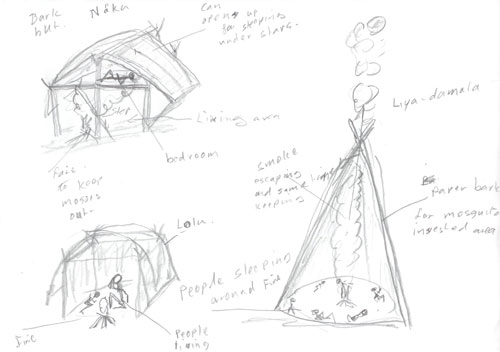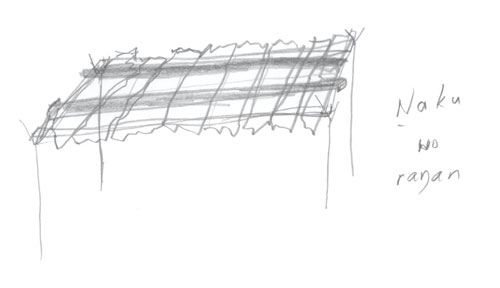Yolŋu Aboriginal Consultants Initiative
Projects
Yolŋu Longgrassers on Larrakia Land
An investigation into issues affecting Yolŋu people living under the stars in the Darwin area. Download pdf
More than a roof overhead
Download full report
More Than a Roof Overhead (MTRO) is a project funded by the Australian Research Council, aimed at ‘meeting the need for a sustainable housing system in remote Indigenous communities’. There are five sub-projects, addressing issues of consultation, education and training, procurement, alternative technologies, life-cycle costings and appraisals, and policy approaches. CDU’s part, was sub-project 1, ‘Consultation for Better Housing Outcomes’ . Our aim was to understand the practices and perspectives of both government and Aboriginal community members around consultation processes.
In Stage 1, a group of eight elders from remote communities in east Arnhemland came together to discuss and provide their perspectives on housing in their community, its history and current state, their vision for the future and consultation processes, particularly those of the Housing Reference Groups.
In Stage 2, staff at all levels of Territory Housing, and Aboriginal community members from Top End and desert communities, mostly HRG members were interviewed using loosely structured questions around consultation processes. This summary integrates the findings of stages 1 and 2.
Draft Main Message Bullets
Comments, questions and feedback are very welcome, please send to michael.christie@cdu.edu.au or matthew.campbell@cdu.edu.au

Download full report
Sub-project number: 1
Consultation for Better Housing Outcomes (Stage 1)
Executive summary:
The Yolŋu consultants see poor housing as the result of lack of consultation and engagement, and the cause of many of the problems Yolŋu are facing today. Even though they were all born during the mission days, they have a strong understanding of Yolŋu life before the mission, and its relevance to everyday life today. The Yolŋu word which could be translated ‘congruence with the proper ancestral way of doing things’ is raypirri’. The places where housing was erected, the designs and functions, the ways in which the spaces were used, the arrangements of buildings, the contrasts between public and private spaces, the authority of the elders, and the names that buildings and spaces were given, were all subject to raypirri’, and should still be today. Sometimes raypirri’ is translated as discipline, but it is a positive productive thing.
In the mission days, houses were often overcrowded, especially in the wet season, but the elders were still properly in charge, and everyone was working. This is still the case in homeland centres, where all the inhabitants have some legitimate connection to the land. Good housing policy must address homeland support. It must find ways of keeping the authority of elders strong.
Today people have a range of experience with housing, from run down unhealthy housing administered by unaccountable and unresponsive authirities to flexible and responsive ‘hybrid’ housing on homeland centres. Yolŋu feel safe in extended families and on land to which they have connections. It is good when people have the opportunity to modify their houses to suit their own needs and changing family structures. Yolŋu have a keen sense of the environment, particularly the ways breezes work, as well as sun, shade and rain. Housing can take advantage of Yolŋu environmental knowledge.
The common experience today is large houses with many people living in them, none of whom has the full responsibility for everyone through kinship. Only one or two people from each household employed, means there are difficulties keeping food, keeping the place clean, sorting out who will pay for the power cards and the rent. The houses are too big. The family units they are expected to accommodate are not appropriate in terms of governance and authority of the elders. Good housing design starts with the needs and work of the elders. We can say that good housing designs themselves reveal and enact raypirri’. They allow people to live in agreement.
Yolŋu see a clear connection between poor housing and poor health. Everyone expects the situation to get worse with the new ‘growth towns’. They are already worse with the new shires. The intervention undermined traditional authority.
Housing reference groups should work two ways – negotiating with Yolŋu on behalf of the housing body, and negotiating with the housing body on behalf of the Yolŋu. This can only work if engagement is taken seriously, and the traditional authority of the elders and the land owners and managers are properly respected. The first thing the elders need is a space where they can meet together and talk about community issues – not just housing. The government refuses to recognize this, and this undermines attempts to implement this raypirri’ in housing decision making.
The consultants
were very happy to be involved and look forward to continuing participation. 